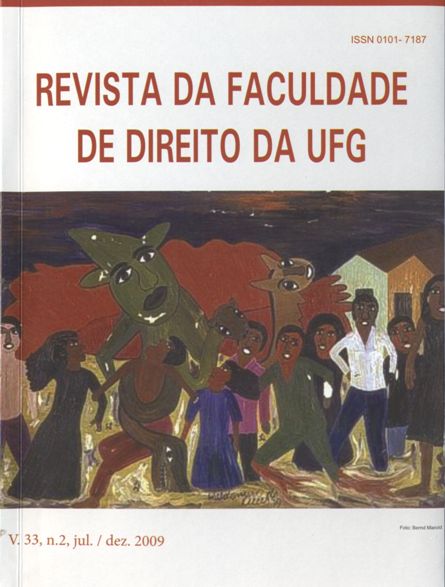The Traditional Communities and the Battle for Ethnic and Collective Rights in the South Of Brazil
DOI:
https://doi.org/10.5216/rfd.v33i2.9862Keywords:
traditional communities, ethnic rights, collectives rights, positivism of battle, juridical pluralismAbstract
In the south of Brazil, specially in Paranáand Santa Catarina, the social invisibility is somethinghistorical to the people and traditional communities infront of society. The recognition of rights by these groupsthat came from the articulation and organization ofthemselves, beyond of not being seen before, by realizationof many collective actions, have been generated newparadigms in juridical field. This “invisibility” of peopleand traditional communities have, historically, resultedin the implementation of public policies in which arefounded proccesses like agrarian exodus, the growth ofslums in the urban centers, the increase of poverty andthe enviromental degradation of traditional territories.There are positivized laws in the national legal system, ason international, that are used to guarantee fundamentalrights of people and traditional communities. One of theways of utilization of these laws is called “positivism ofbattle”, being started a fight to prevail the rights of subalterngroups. It is also questioned the construction of Lawwith an individual and formalistic optical, that difficultsthe recognition of collective and plural rights. Today,despite of liberalism being the paradigm of juridical science,the Law is insert in the social practices, productcoming from dialectical of a praxis produced day by day,alike stimulated by the traditional communities.Downloads
Downloads
Published
How to Cite
Issue
Section
License
Os Autores que publicam nesta revista concedem à Revista da Faculdade de Direito da UFG uma licença mundial, sem royalties, sujeita aos termos e condições da Licença Jurídica Creative Commons Atribuição 3.0 Brasil Creative Commons Attribution License
Os autores concedem à RFD UFG todos os direitos autorais sobre os artigos nela publicados, que os mantêm com exclusividade até o advento de domínio público sobre os mesmos.
























